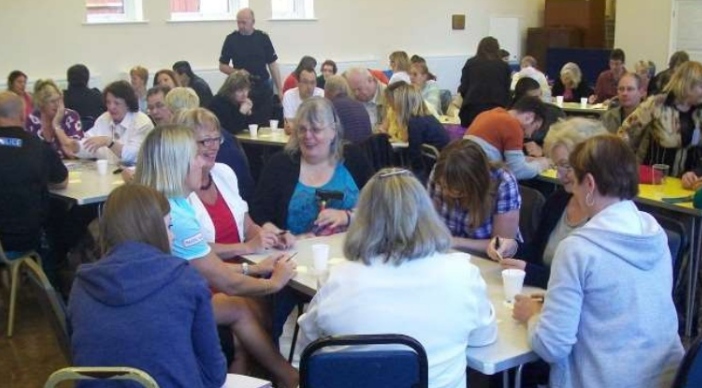The health and well being of our most disadvantaged communities can be well-served and sustained by a complex systems approach, but it takes a commitment from commissioners and a desire not to revert back to the old ways that aren’t working.
Long-term difference
“A complex systems approach has a real potential to make long-term difference,” Dr Robin Durie said. He was speaking after his presentation Creating the Conditions for Health in Low Income Communities: How to Take a Complex Systems Approach at the British Library.
“But more than than, it’s sustainable because of the emergent dynamics. It’s a way that allows power to be manifested and used by our communities for their own benefits in ways which are transformational,” he continued.
A complexity approach
The event was hosted by The Policy Innovation & Evaluation Research Unit in the summer of 2018. Robin was highlighting the power of a complexity approach to public health, using C2 case studies.
As well as being a co-founder of C2, Robin is deputy director of the Wellcome Centre, Exeter, and a Senior Research Fellow and Lecturer in Politics at University of Exeter.
One of the examples he cited was the TR14ers. Back when it started, young people were subject to extended difficulties, including anti-social behaviour orders.
Sustained transformation
“They were perceived to be a source of crime in the area,” said Robin. “Through our approach, it emerged that actually they were suffering from their own isolation – the stigma of being in this very poor area. We were able to work with them and what emerged from that was a street dance programme which has transformed their lives, but more importantly has been sustained now for over 15 years and goes from strength to strength.
“We had no idea that that’s what would have happened when we started working in that area with the local police.”
Not having a predefined template is common.
No template
“We found that in each of the different communities with which we’ve worked, that different outcomes emerge, and that’s the most exciting thing about doing this work,” said Robin.
That in itself creates challenges. But there are others.
“Political systems are very unresponsive to local change,” said Robin. “More than that, they are very suspicious of the devolution of power.
Power
“There’s rhetoric around localism, but actually power seeks to hold itself in the centre. Everything that we’re trying to do, using this complexity idea of self-organisation, is to allow power to become dispersed and distributed throughout networks. That’s a real challenge for those who are used to holding power.
“Frequently, what we’ve found is entrenched power resists the kinds of programmes that we’re trying to be involved in and tries to bring power back to the centre.”
Commitment
Addressing that challenge is something that takes commitment.
“One of the hardest things that we’ve found is often our work will be commissioned without a real investment from the commissioners.
“We really need all partners to be committed to doing work in this way. And to stay with it. The temptation is to return to old ways of working, the temptation is to row-back if it doesn’t appear to be going in the way it was expected.
Support
“We need to support our community partners, but we equally need to support our commissioners, our service providers because this is as challenging for them as it is for our community partners. It’s about making a difference for our residents, but it’s also about making a difference in how services are delivered.
“Change within organisations is always threatening, especially if its change that is literally coming from the bottom up. From our perspective, as much support as we can give to all partners in this work is the strongest lesson learnt.
Vulnerable
“We can’t assume that it’s our most vulnerable community partners who are the ones in need of more support. It’s often the case it’s actually our service providers who become vulnerable because they are doing something so radically different.”



